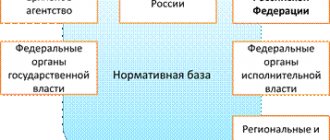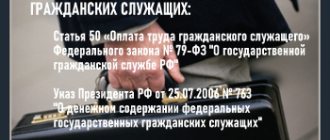Reasons for establishing the fact of death
The purpose of establishing the fact of death is the onset of legal consequences that occur in the event of the death of a citizen.
Legal consequences of the death of a citizen
| No. | Consequences |
| 1 | Opening an inheritance |
| 2 | End of marriage |
| 3 | Recognition of children left without parental care |
| 4 | Removing a citizen from registration |
| 5 | Stopping the accrual of alimony payments both to and from the deceased |
| 6 | Possibility of privatization of residential premises |
| 7 | Stopping utility bills |
| 8 | Registration of pensions or benefits for dependents |
As a rule, the fact of death is established on the basis of a medical death certificate. It is issued by the clinic at the place of last residence of the deceased.
Important! If a death certificate was issued but was lost, then a duplicate must be issued. The procedure for restoring a certificate can be read in the article: “How to restore a death certificate.”
Establishment of the fact of death in court is formalized if it is impossible to obtain a death certificate in the usual way. For example, if a person was washed away from a boat while going down a mountain river. Many people witnessed the death, but the body could not be found. Since the body is missing, the medical institution cannot confirm death and issue a document.
Due to the lack of a document, the heirs cannot dispose of the property of the deceased. The absence of the owner prevents the issue of registration in the apartment, concluding agreements with utility companies, closing loans, and selling property.
Opening of inheritance according to Art. 1113 of the Civil Code of the Russian Federation is possible only after registering the death of a citizen. In the absence of a certificate, the notary will refuse to accept the application from the heirs.
The absence of a breadwinner for minors and disabled dependents deprives them of a source of income. While obtaining a state benefit or pension is impossible.
The actual absence of a parent leads to neglect and homelessness of his children. At the same time, it is impossible to transfer them to the family device, since the parent is considered alive.
Ownerless property of the deceased according to Art. 1151 of the Civil Code of the Russian Federation is recognized as escheat. Inaction of relatives can lead to the loss of property of the missing citizen.
The purpose of applying to court to establish the fact of death
Establishing the fact of death at a certain time and under certain circumstances is important when accepting an inheritance within the period established by law.
In accordance with Article 1154 of the Civil Code of the Russian Federation, an inheritance can be accepted within six months from the date of opening of the inheritance.
The period for accepting an inheritance established by Article 1154 of the Civil Code of the Russian Federation, according to Article 191 of the Civil Code of the Russian Federation, begins the day after the date of opening of the inheritance or after the date of entry into legal force of a court decision declaring a citizen dead (clause 1 of Article 1154 of the Civil Code of the Russian Federation); on the day after the date of death - the day specified in the court decision establishing the fact of death at a certain time (clause 8 of part 2 of Article 264 of the Code of Civil Procedure of the Russian Federation), and if the day is not specified - the next day after the date the court decision entered into legal force. (Clause 38 of the Resolution of the Plenum of the Supreme Court of the Russian Federation dated May 29, 2012 N 9 “On judicial practice in inheritance cases”).
Features of establishing the fact of death
Example. At the time of the shipwreck, a mast fell on one of the passengers. This was seen by many passengers who later escaped. The body of the deceased was washed out to sea and was not found. However, based on the testimony of witnesses, the fact of death is established by the court. The date of death will be the day of the actual death of the citizen.
The district registry office cannot issue a death certificate in such a situation. The reason for refusal may be the lack of a medical report (Article 64 of Federal Law No. 143). The medical institution cannot issue a medical certificate, since in fact the body is missing. Therefore, the heirs have to go to court to establish the fact of death.
Important! The fact of death can only be established if there is irrefutable evidence of the death of a citizen.
How to make an application for establishing the fact of death
Before applying to court to establish the fact of death, it is necessary to prove that there is no other possibility, without a trial, to resolve the issue. To do this, the interested person contacts a medical organization and receives a written refusal to issue a medical death certificate. This refusal will serve as the basis for going to court.
The text of the application must indicate for what purpose it is necessary to establish the fact of death. This is usually done to register an inheritance or resolve housing issues, or arrange a pension in the event of the loss of a breadwinner. Based on the purpose of establishing the fact, it can be determined whether the applicant is a proper person who has the right to appeal to the court and the list of interested parties who will have to take part in the case.
If the filing of an application to establish the fact of death is connected with the subsequent registration of a pension, then the interested parties will be the heirs of the deceased. If the appeal to the court is related to the subsequent assignment of a pension, then the interested party will be the Pension Fund of the Russian Federation. It is always important to precisely formulate the purpose of going to court, then it is easy to identify the interested parties in the case.
In the text of the statement of claim to establish the fact of death, it is necessary to describe in detail the circumstances indicating the death of a person, how the applicant became aware of these circumstances and how this can be confirmed.
It is necessary to distinguish the establishment of the fact of death from the declaration of death. In this case, we know for sure and have irrefutable evidence of the person’s death, however, there is no medical report (the deceased was not examined by a doctor or medical documents have disappeared). If there is no reliable evidence of death, then the citizen is declared dead.
| It is important! |
| Application for declaration of death |
An application to establish the fact of death is submitted to the court at the place of residence of the applicant, regardless of the place of death of the citizen. Only the district court is authorized to consider such cases. The application is accompanied by a receipt of the state duty, documents confirming the fact of death and copies of them for interested parties.
| The current amount of state duty payment today: | |
| state fee to court |
If it is difficult to provide any documents, you can file a petition to obtain evidence. The applicant must take care of ensuring the attendance of witnesses at the court hearing.
The court will satisfy the requirements if indisputable evidence is presented confirming the death of the person. If you disagree with the decision, you can appeal it through the appellate procedure.
What confirms the fact of death
Any legal fact is confirmed by relevant documents. For example, the birth of a baby is confirmed by a birth certificate. A marriage between a man and a woman is confirmed by a marriage certificate.
Proof of a person's death is a medical death certificate or a court order. The first document is issued by the registration authority. Interested parties simply need to submit an application to the Civil Registry Office and pay the state fee.
A medical certificate is attached to the application. The procedure for its issuance is established by letter of the Ministry of Health and Social Development of 2009 No. 14-6/10/2-178. The certificate is issued to family members or other relatives of the deceased citizen. You can obtain a certificate from the morgue that certified the death of an individual. You must have with you the applicant's identity card, the passport of the deceased citizen and his outpatient card.
The second document is issued to the applicant following the trial. The court decision and medical certificate are interim in nature. The applicant will later need to contact the registry office and obtain a death certificate.
How to establish the fact of death in court
Judicial proceedings are opened upon the application of an interested person. Certain circumstances must exist in order to file a claim. The person applied to the registry office and was refused to issue a certificate.
Procedure
- Contacting a medical organization.
- Collection of evidence confirming the death of the owner.
- Preparing a claim.
- Trial.
Contacting a medical organization
If a citizen has died, but his body has not been found, then the interested person must submit an application for the issuance of a medical death certificate to the medical institution at the place of last registration of the citizen (clinic, morgue).
The organization will issue a written refusal to issue the document, since in fact the body of the deceased is missing. The refusal must be attached to the statement of claim.
Contacting the regional registry office
The next step is to contact the district registry office with an application to register the death. Specialists will issue a written refusal, since there is no medical certificate of death.
Collection of evidence
As evidence, irrefutable information about the death of a citizen is required. Among them:
- witness statements;
- video recording;
- photos;
- other information that proves the death.
Important! The evidence varies greatly depending on the specific situation.
Statement
An application to establish the fact of death is submitted to the court at the place of registration of the plaintiff. The hearing of the case takes place within the framework of special proceedings.
Important! A peculiarity of cases of establishing the fact of death in court is the absence of a defendant.
The participation of the prosecutor in the consideration of such cases is mandatory. The statement must indicate the reason for establishing the fact. For example, registration of inheritance, benefits, pensions.
If possible, written evidence of the citizen's death should be provided. Separately, you need to take care of calling witnesses who will confirm the approximate date of death of the subject.
Mandatory document details:
- name of the district court;
- information about the applicant (registration address, full name);
- Title of the document;
- circumstances of the case;
- final request;
- list of attached papers;
- receipt of payment of the fee;
- date, signature of the plaintiff.
Below is a sample application:
Documentation
When filing an application with the court, the plaintiff must submit documents confirming the occurrence of a legal fact. This includes:
- passport of the applicant/deceased subject;
- birth/marriage certificate;
- certificate from the place of registration;
- refusal of a medical organization to issue a medical document on death;
- refusal of the district registry office to register the death.
- evidence of the circumstances cited in the claim;
- tax payment receipt;
- petition to call witnesses.
Important! The application and copies of documents are prepared according to the number of participants in the trial.
Expenses
When submitting an application, the interested party must pay a state fee. When establishing legal facts, 300 rubles are withheld from the applicant.
If the applicant acts through a representative, his costs will increase. The cost of a lawyer’s services will depend on his participation in the case:
- one-time participation;
- preparing an application;
- representation in litigation;
- appeal to government authorities;
- appealing a procedural document;
- full support of the process.
On average, a lawyer’s services for participation in court cost from 15 to 45 thousand rubles. This takes into account the applicant’s region of residence and the popularity of the lawyer.
Establishing the fact of death in court is a complex process, so it is advisable to involve a lawyer. If the court refuses to satisfy the claim, the applicant is deprived of the right to re-apply to the court. Therefore, the plaintiff has no margin for error.
Court costs are not the only expenses for heirs. A complete list of costs when entering into an inheritance can be found in the article: “How much does it cost to enter into an inheritance: costs and expenses.”
Trial
After preparatory activities, the court sets a date for the consideration of the case. Participants in the process are sent subpoenas, copies of statements and evidence.
The applicant has the right to provide additional papers in the meeting room. The court hears the arguments of both parties (applicant, registry office).
If a representative of the registration authority does not appear, then the written explanations that are available in the case materials are read out. After examining all the evidence, the court retires to the deliberation room.
Completion of the trial
The court decision is issued to the participants in the trial based on the results of the hearing. The time frame for issuing a procedural document may differ for participants in the process.
If the applicant was in the courtroom, he will be given a court decision on the day of its announcement. If a participant in the process did not take part in the hearing of the case, then he will be sent a judicial act by mail within 3 days after the decision is made.
Important! Documents are sent to the address specified in the application.
The procedural document becomes valid one month after its announcement. If the plaintiff does not agree with the result of the consideration, he can file an appeal.
If the appeal is not received, the applicant will need to mark that the decision has entered into legal force. After which the plaintiff can contact the vital registration authority and obtain a death certificate.
The applicant's further actions depend on the reason for going to court. To enter into inheritance in accordance with Art. 1153 of the Civil Code of the Russian Federation, you must contact a notary. To apply for a pension, papers are submitted to the Pension Fund of the Russian Federation.
Establishing the fact of acceptance of inheritance in court
Inadequate paperwork or postponing this issue is a problem for many citizens. Therefore, heirs periodically have to not only prove their rights to property, but also justify how the property came to be in the possession of the testator.
One of such cases is the actual acceptance of an inheritance. That is, when one of the relatives died, and the heir did not contact the notary in a timely manner, but continued to use the property.
Actions of the plaintiff after the trial
| No. | Situation | A comment |
| 1 | The plaintiff asked to establish the fact of acceptance of the inheritance | After the court decision is announced, the heir must contact a notary. The certificate is issued on the basis of a judicial act. Later, the heir must register ownership. |
| 2 | The plaintiff asked to establish the fact of acceptance of the inheritance and recognition of ownership | After the court decision is announced, the heir can immediately register ownership |
There are cases when an heir accepts the property of a deceased relative, for example, an apartment, and does not contact a notary within the six months established by law to accept the inheritance in writing.
He lives in this apartment, is not late on rent, uses things that were in this house, and may have made repairs. In fact, he accepted the inheritance, but did not record it on paper, the deadline for entering into the inheritance was missed, and now this fact can be challenged and the property can be sued.
Most often, there are other heirs who begin the inheritance conflict.
To eliminate this problem, it is necessary to prove and establish the fact of acceptance of the inheritance through the court, even after six months.
To establish in court the fact of acceptance of an inheritance, follow these steps:
- Prepare an application to the court to establish the relevant fact. ATTENTION: if there is a dispute about the right, the court will leave the application without consideration.
- Apply to the court at your place of residence.
- Take part in the court hearing, justifying your application.
- Wait for the court's decision.
- If the court refuses to satisfy your application, appeal it to a higher court.
What you must indicate when filing a statement of claim to establish the fact of acceptance of the inheritance in court and what evidence you must present:
- The fact that the inheritance is open. Proof can be the death certificate of the testator.
- Description of the property transferred to you (money, real estate, car, etc.). This information may be specified in the will or specified separately.
- Evidence that you have accepted the inheritance. Here you can present receipts for payments for housing, taxes, and insurance paid by you. In addition, confirmation of two witnesses will be required.
- Proof that you are the heir. It is necessary to confirm the fact of relationship (more details about establishing the fact of relationship with the deceased by reference). This could be a birth certificate, marriage certificate, or marks in a passport. If there is no such evidence, it will need to be established during the trial. If you are not a relative, then you are an interested party who is considered a potential heir.
- Jurisdiction of cases on establishing the fact of inheritance. Declaring only a requirement to establish the fact of acceptance of the inheritance, the applicant submits an application to the district court at his place of residence.
- Other important circumstances.
IMPORTANT: the purpose of going to court is to establish the legal fact of acceptance of the inheritance. It is necessary to formalize inheritance rights; for more information on how to file a claim in court, see the video
Arbitrage practice
As practice shows, in claims to establish the fact of death, a positive decision is made only if there is adequate evidence.
Example. The above statement was received by the court. The circumstances of the case are that the applicant’s son died of cancer. Due to emotional shock, the father was unable to contact the registry office. As a result, he did not receive a death certificate. On the day of his death, the son was divorced. The young man has a son. However, the child’s mother does not allow the grandfather to communicate with him. The parents of the deceased citizen had to come to terms with the decision of his ex-wife. After some time, the woman moved to live in another country. Soon the grandson returned to his homeland. The guy expressed a desire to live with his grandfather. Almost immediately the grandson began studying. Then the question arose about receiving a survivor's pension. An appeal to the registry office did not yield any results. Employees of the vital registration authority advised them to go to court. Witnesses confirmed the applicant's testimony. A separate proof of a legal fact is a certificate from the local Administration. It confirms the fact and cause of death of the applicant's son. Separately, the applicant provided a photo of a tombstone at the burial of a relative. The court granted the application (Decision of the Kazbekovsky District Court of the Republic of Dagestan dated 02.02.2012).
The court's decision is based on written evidence and testimony of the citizen's death. A photo of the burial site is also one of the relevant evidence.
Example. The court received an application to establish the fact of death. The circumstances of the case are that the applicant’s son committed suicide. An appeal to the registry office did not yield any results. The reason for refusal is that the death certificate has already been issued to another person. The applicant needs the document to remove his son from the registration register. Proof of the death of a citizen is a certificate from the village Administration. The court confirmed the fact that the deceased subject was buried by another person. Additional evidence is the decision to terminate the criminal case against the deceased citizen. Interviewed witnesses confirmed the circumstances of the death. The court satisfied the stated requirements (Decision of the Sovetsky District Court of Makhachkala dated June 26, 2012).




